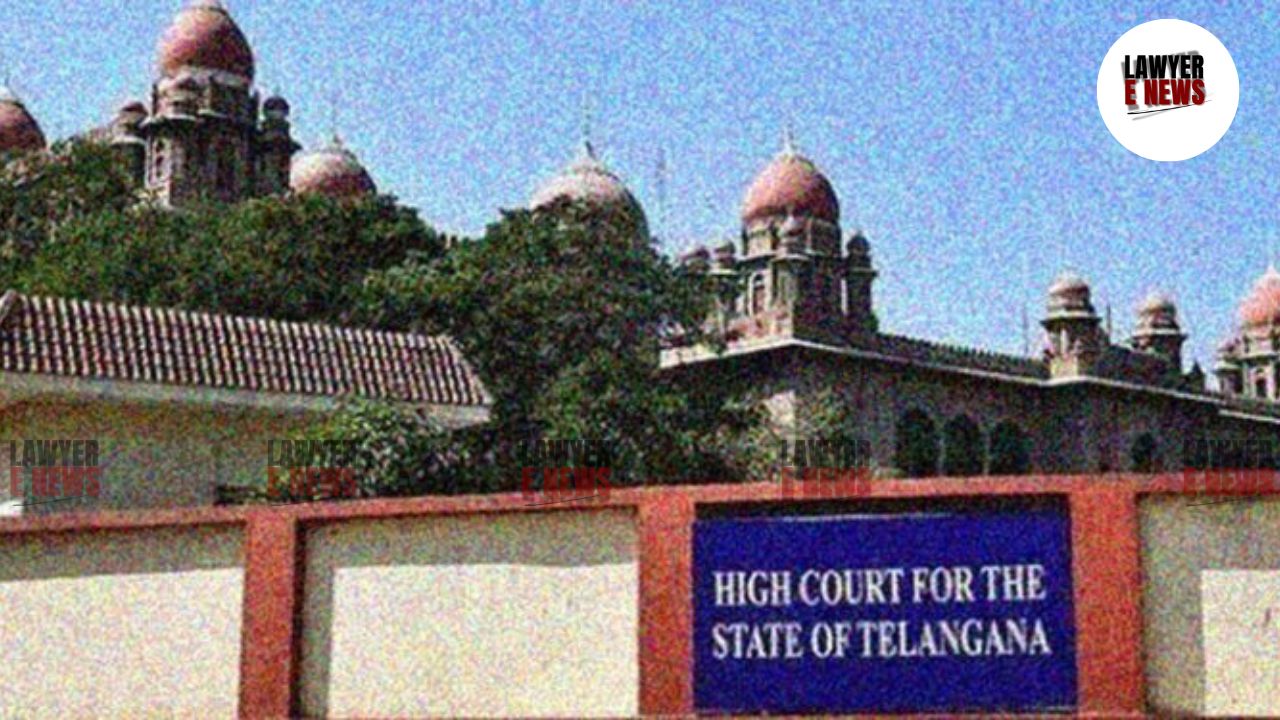-
by Admin
15 February 2026 5:35 AM



Telangana High Court held that Commission has the authority to inquire into alleged unfair practices affecting women, even in cases brought by third parties. On October 28, 2024, the Telangana High Court dismissed a petition filed by astrologer Venu Swamy, challenging a summons issued by the Telangana State Women’s Commission. The Commission had initiated proceedings based on complaints alleging that Swamy made derogatory and demeaning predictions about women celebrities, affecting their reputation. The court held that the Commission had acted within its authority, as stipulated by the Telangana State Women's Commission Act, 1998, affirming the Commission's mandate to address any unfair practices impacting women.
Venu Swamy, a well-known astrologer, allegedly made public predictions about the personal lives of prominent women celebrities, including actresses like Naga Chaitanya, Samantha, and Sobhitha Dhulipala. The complaints, filed by the Telugu Film Journalists’ Association and the Telugu Film Digital Media Association, accused Swamy of tarnishing the reputations of these public figures through derogatory predictions. In response, the Telangana State Women’s Commission issued a summons on August 12, 2024, directing Swamy to appear for an inquiry.
Swamy filed a writ petition, contending that the Commission had exceeded its jurisdiction, as the complaints did not originate from affected individuals. He also argued that the issuance of the summons without preliminary investigation rendered the action invalid.
Authority of the Commission: Swamy argued that the Women’s Commission lacked jurisdiction since the complaints were filed by third parties, not by the aggrieved individuals themselves. He claimed that the absence of a direct complaint from the affected women invalidated the summons.
The court, however, held that the Commission has the power to act based on “its own knowledge or information,” per Section 16(1)(b) of the Telangana State Women’s Commission Act. The Act permits the Commission to initiate inquiries into unfair practices affecting women based on information received, even if not filed by the individuals directly impacted.
Necessity of Preliminary Investigation: Swamy contended that the Commission’s failure to conduct a preliminary investigation before issuing the summons was a procedural lapse. However, the court clarified that preliminary investigation under Section 16(2) is required only for complaints directly filed by aggrieved women. In cases initiated under Section 16(1)(b) based on information from third parties, as here, preliminary investigation is not mandatory.
Defining Unfair Practices Under the Act: The court referenced Section 2(h) of the Telangana State Women’s Commission Act, which defines “unfair practice” to include any action that impairs a woman’s rights or tarnishes her reputation based on gender. Swamy’s predictions, specifically targeting women’s personal lives, were deemed to potentially constitute unfair practices under this definition, allowing the Commission to issue a summons and investigate further.
Right to Challenge a Summons: The court cited Union of India v. Kunisetty Satyanarayana (2006), affirming that writ petitions challenging show-cause notices or summons are generally premature. It held that Swamy’s petition lacked sufficient grounds since the summons did not represent a final adverse order, and he retained the right to defend himself during the inquiry.
The High Court dismissed Swamy’s petition as premature and upheld the Commission’s authority to proceed with the inquiry. The court directed the Women’s Commission to provide Swamy with a copy of the complaint and to conduct the inquiry per the principles of natural justice, ensuring him a fair opportunity to respond to the allegations.
Date of Decision: October 28, 2024
